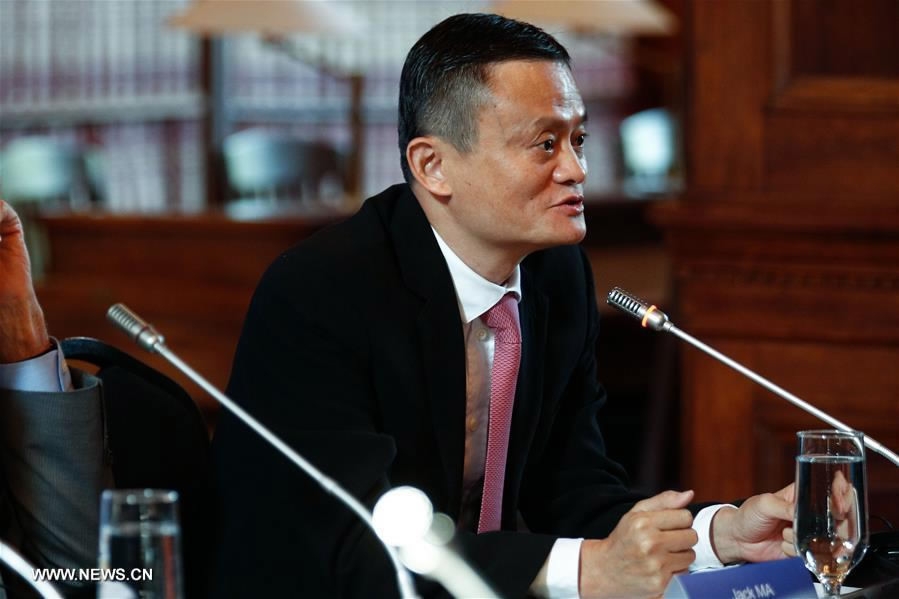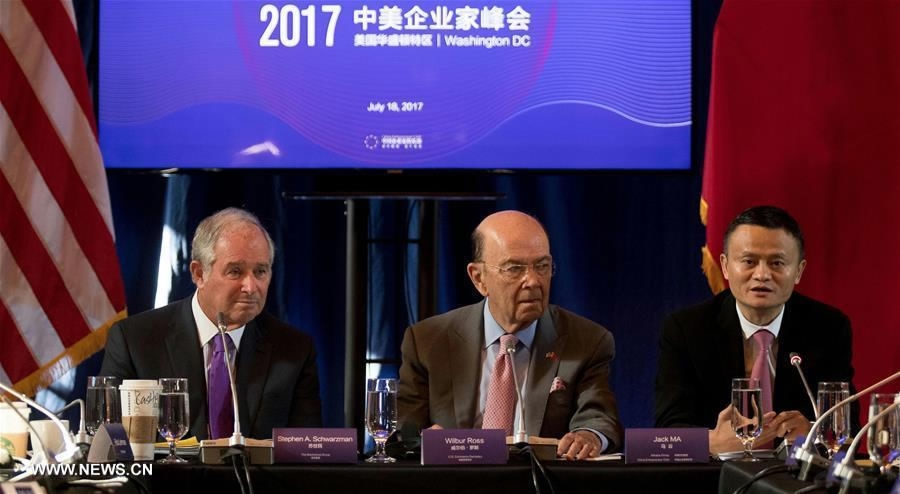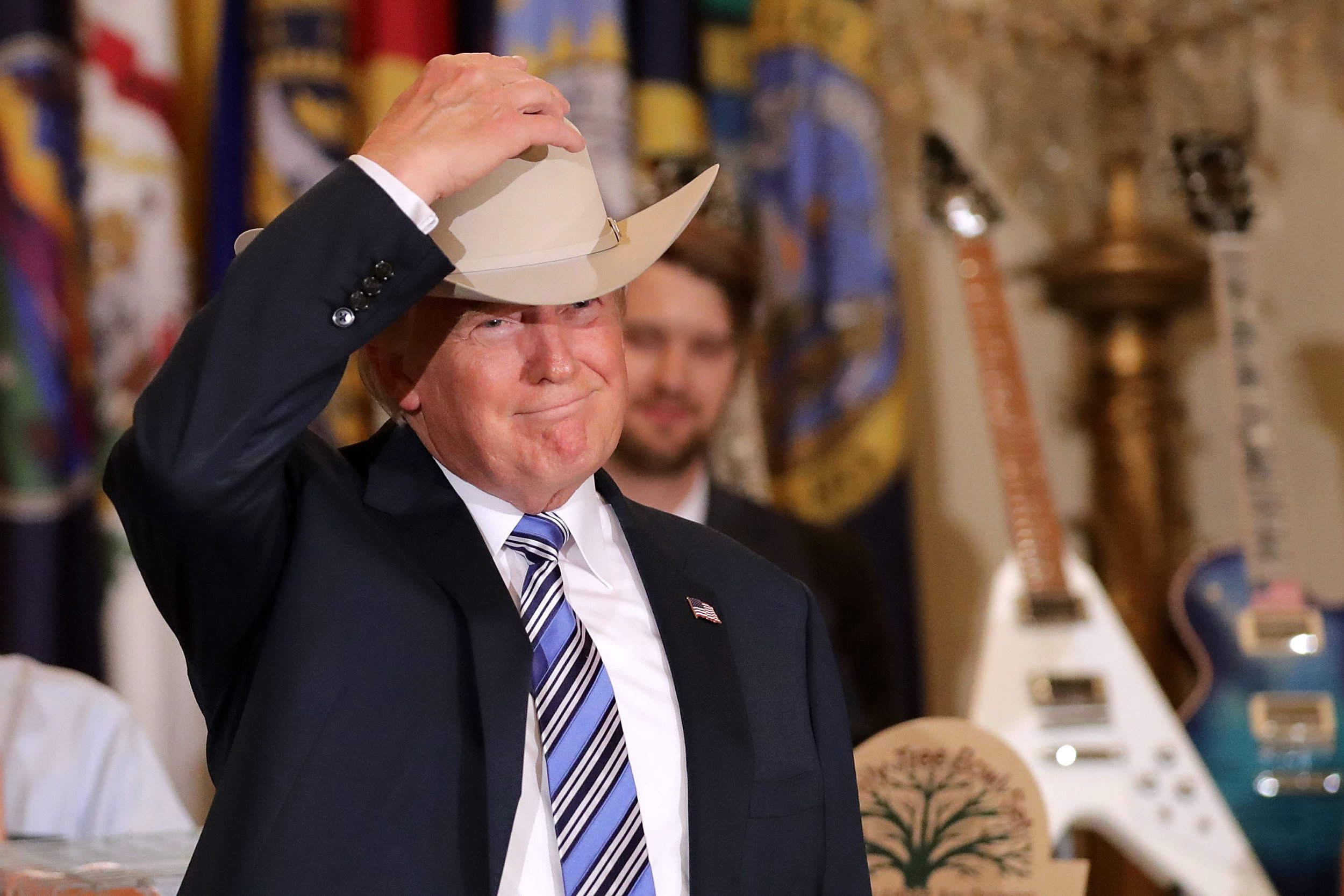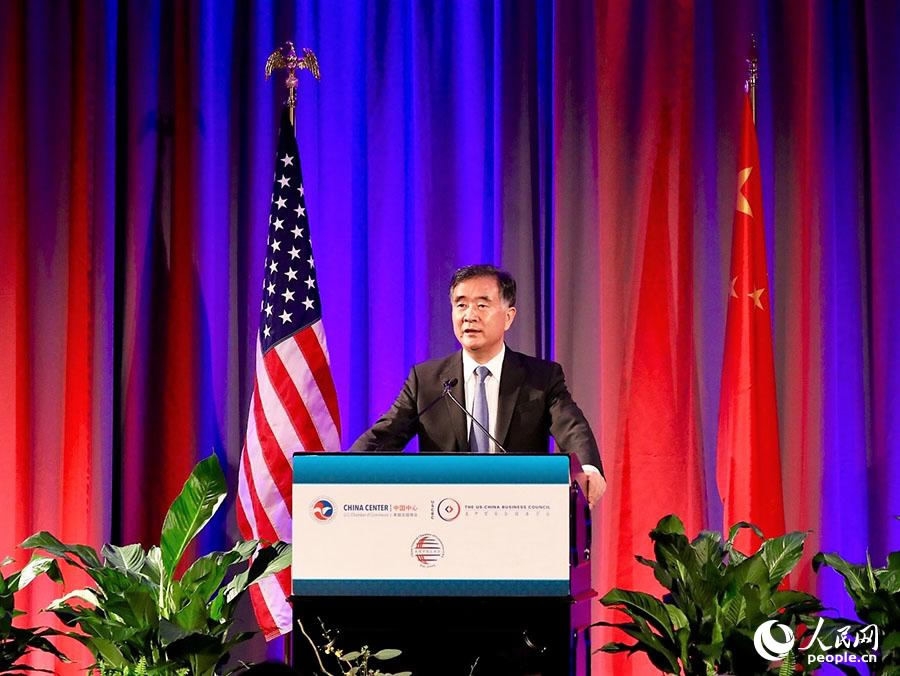Chinese e-commerce tycoon Jack Ma proposed to his US counterparts to not let problems of the past hinder the future economic relations between China and the US, and renewed his call for the expansion of free trade.
"It is much more than 'made in America' or 'made in China'. Our relationship today reflects a deep business partnership where capital, people, and ideas are fully integrated," said Ma, during a press conference at the US Department of Commerce in Washington on Tuesday.

Jack Ma, founder and chairman of Chinese e-commerce giant Alibaba, attends the 2017 China-US Business Leaders Summit in Washington, DC on July 18, 2017. /Xinhua Photo
The US-China Business Leaders Summit brought together more than 20 business leaders from China and the US to discuss economic issues of mutual importance to both countries. US Secretary of Commerce Wilbur Ross attended the meeting.
Jack Ma and Stephen Schwarzman, a co-founder of the private-equity firm the Blackstone Group and an advisor to president Trump, co-chaired the meeting.
Ma encouraged the business sector to seize the opportunity as a group to set out and define a vision for the bilateral commercial relationship.
"In the future, I believe we will not talk about products being made in your country or mine, but rather on the Internet," Ma added.
Schwarzman said the summit was to figure out how they can give practical advice to respective governments and what solutions could be relatively easy in order to move aside tariffs and non-tariff trade barriers.
Ross acknowledged that “serious imbalances” between the US and China “must be rectified.” But he said the private sector “is best equipped to carry the ball across the goal line.”
The participants were set to produce a list of suggestions for officials of the two governments to consider.

US Commerce Secretary Wilbur Ross (C), Chairman and CEO of the Blackstone Group Stephen Schwarzman (L) and founder and Chairman of Chinese e-commerce giant Alibaba Jack Ma attend the 2017 China-US Business Leaders Summit in Washington, DC on July 18, 2017. /Xinhua Photo
"We call on political leaders in the United States and China to strengthen cooperation and dialogues on regulation and supervision, protection of intellectual property rights, free, fair and open market access and to eliminate procedures and practices that act as a hindrance to economic growth and job creation,” said a joint statement released on Tuesday after the summit.
The meeting was held a day before a separately scheduled economic policy discussion between the two governments, the first of the four rounds of the Comprehensive Economic Dialogue between China and the US, on Wednesday.
Tuesday’s meeting was largely a private-sector event, and officials had no obligation to act on its conclusions, the organizers said.
This meeting occurred at a sensitive time as the Trump administration has sought to rewrite American regulations involving the two countries. A day earlier, Trump surrounded himself with American goods at a While House "Made in America" event.

US President Donald Trump puts on a Stetson cowboy hat while touring a "Made in America" product showcase in the East Room of the White House on July 17, 2017 in Washington, DC /VCG Photo
He addressed, "We want to build, create, and grow more products in our country using American labor, American goods, and American grit. When we purchase products made in the USA, the profits stay here, the revenue stays here, and the jobs, maybe most importantly of all, they stay right here in the USA."
Free traders said Trump's agenda is protectionist, especially as he considers imposing new tariffs on steel and other metal imports in retaliation for what he sees as punitive financial barriers for US exports.

Chinese Vice Premier Wang Yang speaks at a US-China Business Council event in Washington, DC on July 18, 2017. /People.com Photo
On China's side, Chinese Vice Premier Wang Yang downplayed the possibility of an emerging trade war at a US-China Business Council event in Washington on Tuesday.
Wang credited the US business community’s “long-standing support and active participation” with “helping to create an atmosphere in favor of cooperation rather than confrontation for China-US business ties”.
“Twists and turns in our cooperation going forward” are part of the countries’ evolving relationship, said Wang.










